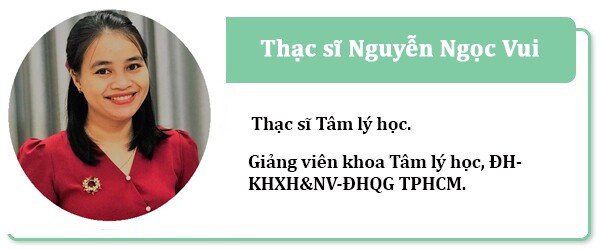There are differing opinions on whether children should be involved in family financial matters. Some believe that involving children in financial discussions teaches them the value of money and how to manage it effectively. This approach fosters a sense of financial responsibility and encourages prudent spending and saving habits from a young age.
Others argue that understanding financial matters empowers children to make better decisions when it comes to money, whether it’s shopping or investing. Moreover, knowing the origin of money and how it’s used can foster independence as they grow older, enabling them to make their own financial plans without relying on others.

Illustrative image.
On the other hand, some parents hold the view that “Children don’t need to know about these adult matters”. They prefer to shield their children from financial discussions, believing that “They’re too young to understand” or that “They should focus on their own affairs”. This protective stance aims to spare children from adult concerns prematurely.
These contrasting perspectives highlight the delicate nature of involving children in family financial matters. It is a decision that warrants careful consideration.
When approached appropriately, educating children about financial matters can foster their financial literacy and independence while building their confidence in navigating life. However, parents must exercise caution in their methods and the information they share to ensure a solid foundation without inducing stress or anxiety.

Psychologist Nguyen Ngoc Vui.

How should parents respond when their child asks, “Mom, are we rich?” or “How much money do we have?” Should parents be honest about their financial situation with their children?
The response to these questions depends on the parents’ perspective and parenting style. Some families choose to be open about their financial situation, while others believe that children lack the necessary maturity and understanding of wealth and money matters, so they keep this information hidden. There are also families who neither conceal nor explicitly reveal their financial status.
Currently, there are ongoing debates around this topic. However, parents can consider factors such as the child’s age and personality traits to decide whether to disclose the truth or not.
In reality, parents can refuse to answer by saying, “This money isn’t earned by you, so we won’t discuss it now. When you’re older and have a better understanding, we’ll tell you.”
Keep in mind that some children may not be good at keeping secrets. If you notice your child sharing personal matters with grandparents or neighbors, be cautious, as they may innocently reveal information about your family’s finances.

What if parents respond in two different ways: “We’re dirt poor!” or “We can buy anything we want, we’re rich!” How will these responses affect the child?
Let’s consider the potential impact of each response:
If parents say, “We’re dirt poor!” when, in reality, the family is financially comfortable, it can lead to unintended consequences in the child’s thinking and behavior.
Firstly, such a statement may cause the child to feel inferior or ashamed compared to their peers, leading to self-doubt or even emotional distress.
I have worked with clients who struggled with issues of self-worth and identity because they believed their families were impoverished during their childhood. They felt embarrassed about their financial situation and even blamed themselves for it. Moreover, they felt unworthy of a place in society.
On the other hand, saying “We can buy anything we want, we’re rich!” can instill a dangerous mindset in children: “If someone is rich, they can do whatever they want.” However, life is more complex than that. Our needs are infinite, but our resources are limited, and our desires constantly evolve. Imprinting this philosophy on a child who cannot yet earn money can have far-reaching consequences.
Therefore, both responses can negatively impact a child’s perception and understanding of the world.

When a child asks, “Mom, are we rich?” or “How much money do we have?” what is the child trying to understand from the parent’s perspective?
If the child asks these questions after hearing their friends boast about their family’s wealth, they may be seeking validation. In this case, parents should be honest about their financial situation and gently guide the child to understand that a person’s value isn’t determined by money. Teach them that a good friend is not defined by their wealth but by their character and actions.
On the other hand, if the child hasn’t encountered such peer pressure and is simply curious, it could be a sign of their maturing mindset. Perhaps they are entering adolescence and seeking affirmation from their close friends, or they may be thinking about their future education and whether their parents can afford to send them abroad for university.
In such cases, parents should have open conversations with their children, saying something like, “We can’t afford to send you abroad for university, but if you work hard and get good grades, you can apply for scholarships.” Or, “You don’t need to worry about this expensive course. While it seems pricey, if you feel it will benefit your future, let’s discuss it further. We can explore other options to invest in your development.”
By doing so, parents can uncover their child’s underlying motivations and guide them toward a healthier mindset if needed.

How can parents teach their children about the family’s financial circumstances and, more broadly, build a healthy financial mindset for their future?
Parents should understand and impart some fundamental principles to their children through financial discussions:
– Money is essential but not the only thing that matters in life.
– Teach children to spend money on the right things by involving them in decisions about buying clothes, toys, or school supplies. Use these opportunities to explain that earning money is challenging, and adults work hard in various ways to make a living. Therefore, it is the child’s responsibility to use money wisely and for the right purposes.
– Instill the understanding that money is a means to an end, not an end in itself. Emphasize that as they grow up and start working, they will earn money to take care of themselves, help others, invest in their growth, and save for the future…
The 3 Keys to Unlocking Wealth: A Simple Guide to Transforming Your Financial Destiny
The bag you carry every day is not just a holder of your personal belongings. In the practice of Feng Shui, it is believed to be a “repository of energy” that can influence your financial situation. By keeping these three small items in your bag, you can activate a flow of good fortune and pave the way for wealth and prosperity.






































